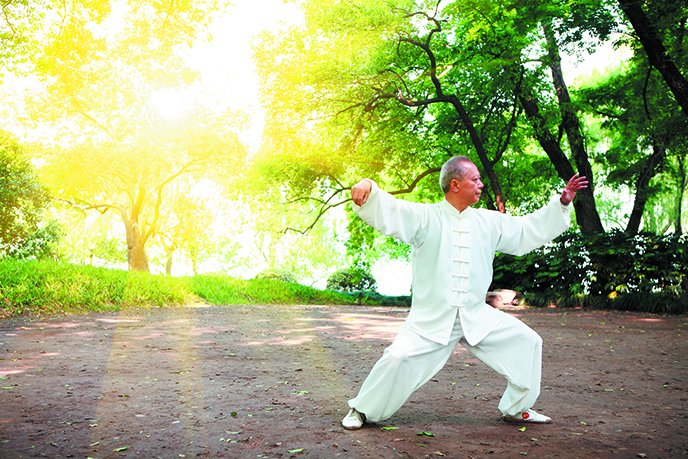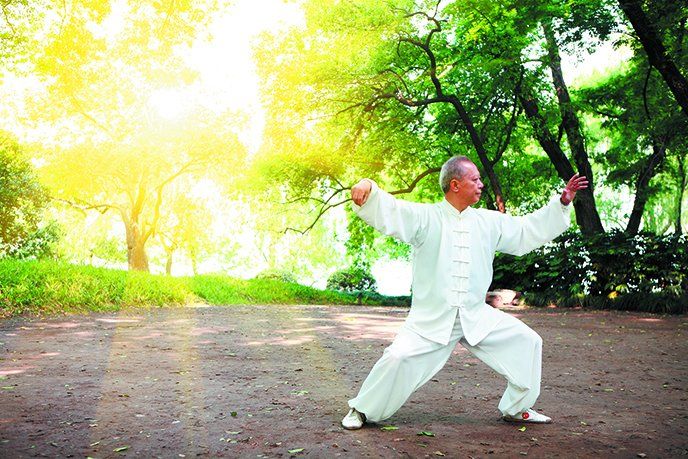Dreamstime.com

Could an ancient Chinese mind-body practice help with knee pain from osteoarthritis? A new Tufts study reports that tai chi produces benefits similar to physical therapy for osteoarthritis patients.
The study, led by Chenchen Wang, MD, a professor at Tufts’ School of Medicine, focused on osteoarthritis patients who reported significant pain. The average participant was 60 years old, and many were obese. “This was a really representative sample of patients we see in our clinical practice at Tufts Medical Center every day,” says Dr. Wang.
Also director of the Center for Complementary and Integrative Medicine at Tufts Medical Center, Dr. Wang says tai chi combines meditation with slow, gentle, graceful movements, deep diaphragmatic breathing, and relaxation.
12-WEEK PROGRAM: In the new study, published in Annals of Internal Medicine, patients were randomly assigned to either tai chi twice a week for 12 weeks with an experienced instructor, or to physical therapy twice a week for six weeks followed by six weeks of exercise at home. At the end of the 12 weeks, the tai chi and physical therapy groups reported equal improvement in pain and related health outcomes. These effects remained a year after the start of the study.
“Six weeks is very expensive with a physical therapist,” says Dr. Wang. By comparison, “tai chi is relatively cheap, and you can get it in a lot of places.” Many YMCA/YWCAs across the country offer classes in tai chi, for example.
The effects were the same across the four tai chi instructors, she adds, showing the protocol is easy to learn and perform successfully. “Everyone can do this,” she says.
QUALITY OF LIFE: The tai chi group also showed significantly more improvement than the physical therapy group when it came to depression and quality of life. Dr. Wang and colleagues note, “By integrating physical, psychosocial, emotional, spiritual and behavioral elements, tai chi may systematically promote health by its effect on both the body and the mind.”
Next Dr. Wang plans to study the mechanism by which tai chi produces its benefits. She has been conducting brain-imaging studies to more closely examine the biological psychology and social aspects of the treatment. She will also examine the health-care spending savings of offering tai chi as an alternative to physical therapy.
The study subjects began not even knowing what tai chi is, she adds. “But when we brought them to the tai chi room at Tufts Medical Center week by week, we saw them changing to become happier, healthier people,” says Dr. Wang. “It was very exciting to see every day.”
TO LEARN MORE: Annals of Internal Medicine, July 19, 2016 –
Your diet can also help alleviate the painful symptoms of osteoarthritis. In addition to controlling calories to lose weight, the Arthritis Foundation recommends these foods that may fight inflammation and strengthen joints:
– fish
– soy
– unsaturated oils
– cherries and berries
– low-fat dairy products
– broccoli
– green tea
– citrus fruits
– garlic
– nuts
























